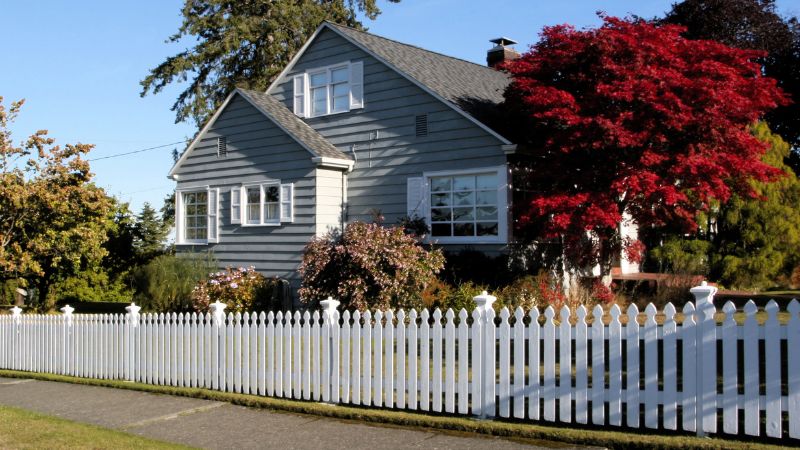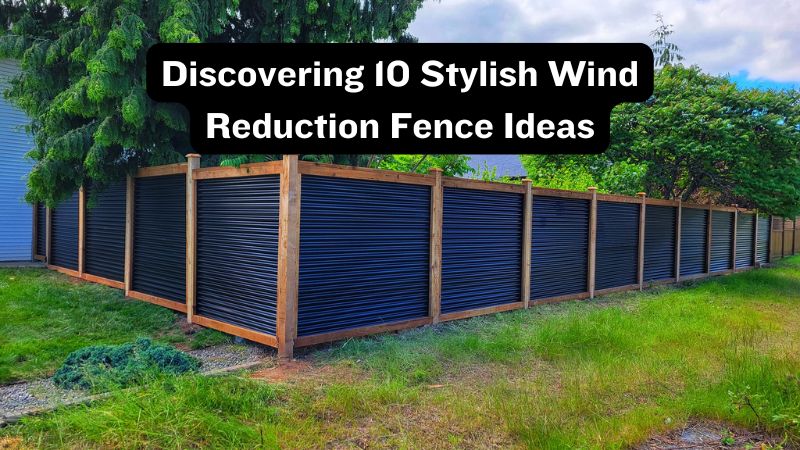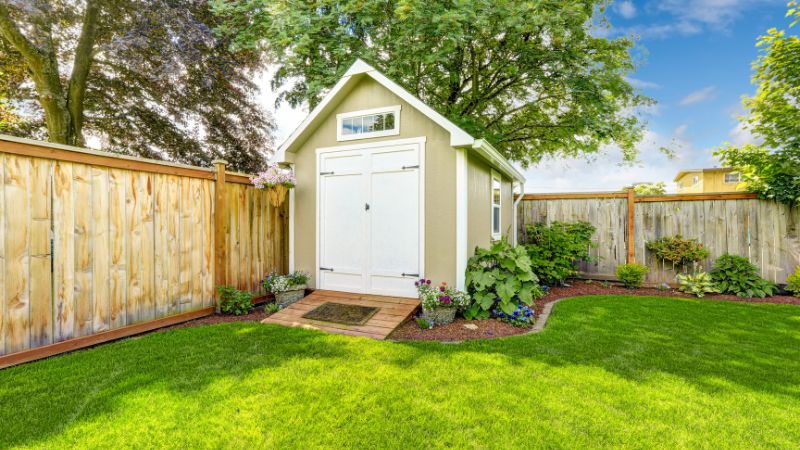Choosing the right fence for your home is a crucial decision that impacts both the security and aesthetic appeal of your property. Whether you’re looking to enhance privacy, keep pets secure, or simply boost curb appeal, the right fence can make all the difference. However, with so many materials, styles, and regulations to consider, the selection process can quickly become overwhelming. This guide will walk you through 10 essential tips to help you navigate the complexities of choosing the perfect fence. From understanding local zoning laws to selecting the best materials for your needs, these tips will ensure you make an informed decision that suits your lifestyle, budget, and home’s architecture.
10 Tips For Choosing The Right Fence For Your Home
1. Determine Your Needs
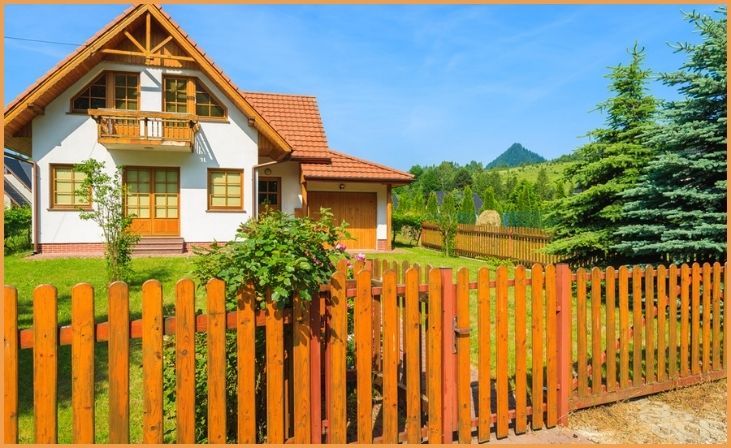
When selecting the appropriate fence, the first thing to do is to figure out what it will be used for. Would you like to improve the appearance of your property, as well as get more privacy and security? For privacy, consider tall, solid fences, such as those made of wood or vinyl. For security, metal fences, like wrought iron or aluminum, are excellent choices. If aesthetics are your primary concern, a decorative picket or ornamental metal fence may be ideal. Clearly defining your needs will help narrow down your options and guide you toward the most suitable material and design.
Also Read:- Fencing Solutions Unveiled By The Best Fence Contractors
2. Consider Your Budget
Fencing can be a significant investment, so it’s essential to set a realistic budget early in the process. The cost of a fence depends on the material, height, length, and installation. For instance, wood and chain-link fences are generally less expensive, while vinyl, aluminum, and wrought iron tend to be more costly. Don’t forget to factor in maintenance costs, as some materials, like wood, require regular upkeep, whereas vinyl and aluminum are relatively low-maintenance. By establishing a budget, you can focus on options that provide the best value without compromising on quality or function.
3. Research Local Zoning Laws
In order to ensure that your fencing project is successful, it is essential to conduct research on the local zoning laws and the regulations of the homeowners association (HOA). There is a possibility that these rules will determine the height, style, and even the positioning of your fence. If you do not comply with these regulations, you may be subject to fines or you may be required to remove your fence that was just recently installed. You can obtain specific information about what is permitted in your area by getting in touch with the zoning office or the homeowners association in your area. It is important to take this step because it will save you time, money, and frustration while also ensuring that your fence satisfies all of the local requirements.
4. Choose the Right Material
Your fence’s material has a big impact on how long it lasts, how easy it is to maintain, and how it looks. Typical fencing materials consist of wrought iron, vinyl, aluminum, wood, and chain-link. Wood offers a natural, classic look but requires regular maintenance to prevent rot and insect damage. Vinyl is low-maintenance and weather-resistant, while aluminum provides durability and a sleek appearance without rusting. Chain-link is affordable and functional but lacks privacy and aesthetic appeal. Wrought iron is highly durable and adds a touch of elegance, though it comes at a higher cost. Consider the climate, maintenance requirements, and your aesthetic preferences when choosing a material.
5. Evaluate the Style of Your Home
The overall appearance of your home should be improved and the style of your fence should match. For instance, a modern home might look best with a sleek, minimalist metal fence, while a traditional or cottage-style home may pair well with a wooden picket fence. The color of your fence should also harmonize with your home’s exterior. For example, a white fence can create a classic, clean look, while darker colors might add a modern or rustic touch. By considering your home’s architecture, you can choose a fence style that enhances your property’s curb appeal and creates a cohesive look.
6. Think About Maintenance
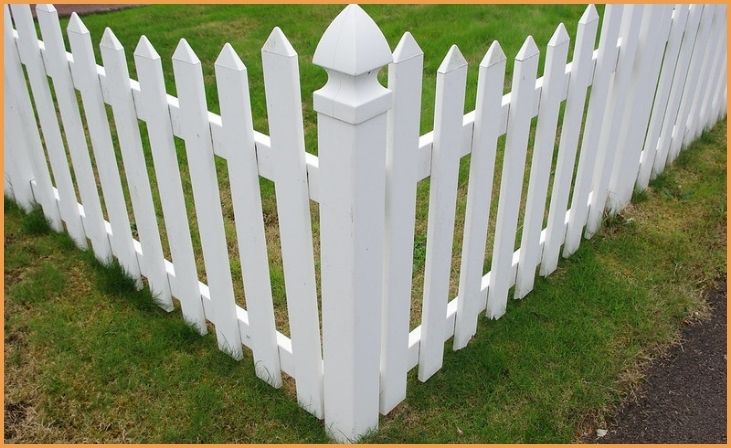
When selecting the ideal fence material, maintenance is a crucial consideration. To keep certain materials looking and working well, they need to be maintained on a regular basis. For example, wood fences require regular painting or staining to keep them weather-resistant and prevent rot. Conversely, low-maintenance materials like vinyl and aluminum only need the occasional cleaning to maintain their best appearance. Think about how much time and effort you are willing to put into maintenance when choosing the material for your fence. If you’d rather not have to deal with fence maintenance, a low-maintenance option might be better.
7. Factor in Climate and Weather Conditions
The climate and weather conditions in your area should heavily influence your choice of fencing material. For instance, wood fences may not fare well in areas with high humidity or frequent rainfall, as they are prone to rot and warping. Metal fences like aluminum or wrought iron are better suited to these conditions, as they resist rust and corrosion. In areas with harsh winters, a durable material like vinyl or aluminum is ideal, as they can withstand freezing temperatures without cracking or deteriorating. You can choose a fence that will last longer and require less maintenance by taking the local climate into account.
8. Consider Your Neighbor’s View
When installing a fence, it’s essential to consider your neighbor’s perspective, especially if your properties are close together. A tall, solid fence might provide you with privacy, but it could also block sunlight or create a claustrophobic feeling for your neighbor. To maintain good relations, discuss your fencing plans with your neighbors before starting the installation. In some cases, you might opt for a semi-private fence that offers some privacy without completely obstructing the view. This consideration can help you choose a fence that meets your needs while keeping peace with your neighbors.
9. Plan for the Future
When choosing a fence, it’s important to think long-term. Consider how your requirements might change over the course of time. For instance, if you plan to have children or pets in the future, a taller, more secure fence might be necessary. Similarly, if you’re considering selling your home down the line, a well-maintained, aesthetically pleasing fence can add to your property’s value. Choosing a durable material that ages well and requires minimal maintenance will ensure your fence remains functional and attractive for years to come, providing lasting value for your investment.
Also Read:- Innovative And Stylish Fence Designs For Your Home
10. Hire a Professional Installer

While DIY fence installation might seem cost-effective, hiring a professional ensures the job is done correctly and efficiently. It is possible for professional installers to handle potential challenges, such as uneven terrain or complex layouts, because they have the experience and tools necessary to do so. They also understand local zoning laws and can ensure your fence meets all regulations. Additionally, many professional installations come with warranties, providing peace of mind that your investment is protected. While hiring a professional might be more expensive upfront, it can save you time, stress, and potential costly repairs in the long run.
Conclusion
Selecting the right fence for your home is more than just a functional choice—it’s an investment in your property’s future. Following these 10 tips, you can confidently choose a fence that meets your needs, complements your home’s style, and fits your budget. Whether you prioritize security, privacy, or aesthetics, the right fence will enhance your home’s value and your peace of mind.
FAQs
What is the most durable fencing material?
Vinyl and aluminum are among the most durable fencing materials, offering long-lasting protection with minimal maintenance.
Do I need a permit to install a fence?
Permit requirements vary by location, so it’s essential to check with your local zoning office before installation.
